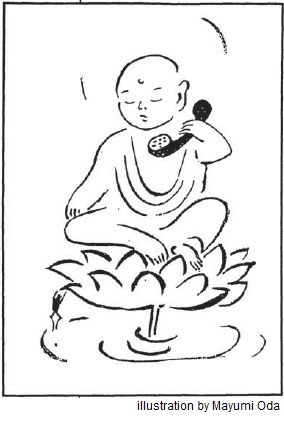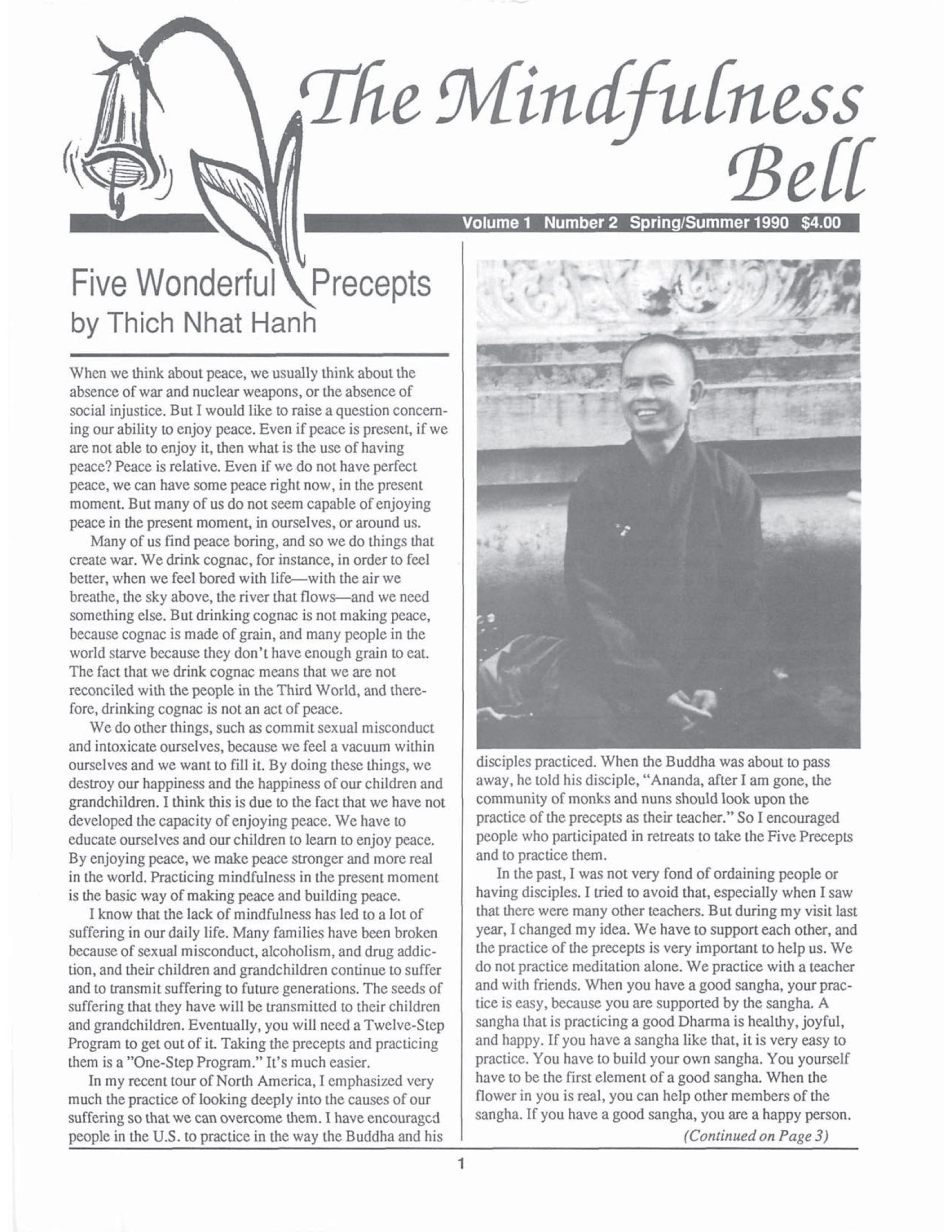By Sally Maguire
In March, at the end of a Day of Mindfulness in New York City, several of us had a discussion about the precept concerning right speech. Various situations were described wherein it seemed that lying could be justified, even found to be preferable to telling the truth.

The term lying itself seems a harsh word or judgment in many instances. In fact, in some cultures,
By Sally Maguire
In March, at the end of a Day of Mindfulness in New York City, several of us had a discussion about the precept concerning right speech. Various situations were described wherein it seemed that lying could be justified, even found to be preferable to telling the truth.

The term lying itself seems a harsh word or judgment in many instances. In fact, in some cultures, being less than truthful, in our terms, is accepted, even routine. So being mindful in our speech, we can look at each situation and see what is appropriate for us to say--deciding not from a rigid code of true/false, but from a sensitivity to the individual circumstances. What will cause the least harm can often be a guide.
Some of the situations cited included the social lie--giving a false excuse when one doesn't want to meet a friend for lunch or a party in order not to cause hurt feelings; discovering that a proposed "blind date" has a contagious disease and wondering whether to avoid the date with a lie or confront with the truth; lying to avoid military service. These instances seem to involve avoidance more than deceit. In India, relationships are so valued that one would never refuse a request for an appointment even if there was no intention of keeping the date. To agree to meet someone and not show up as promised would certainly not be acceptable in our society. Yet, being alert to certain cues given in the arrangements, the Indian would not be deceived. He would know whether or not to consider the acceptance of his invitation true or false, and he would know whether or not to show up for the appointment.
Other, more desperate situations where lying seems preferable to telling the truth include protecting someone from danger. In any and all cases, it was felt that going back to the principle of being mindful in one's speech, looking deeply into each situation with compassion, one could do one's best to live up to the precept of right speech. It would be helpful to have a language/system of perception for these relative situations where the rigid code leaves no room for sensitive, compassionate behavior.
Sally Maguire lives in New York City

